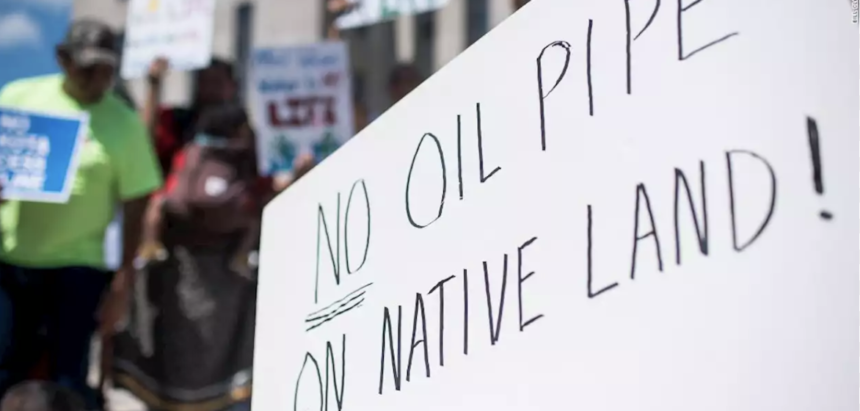Judge orders temporary shutdown of controversial Dakota Access Pipeline

New York (CNN Business)The Dakota Access Pipeline must shut down by August 5 during an in-depth environmental review of the controversial project, a district court ruled Monday in a defeat for the Trump administration.
The ruling marks a major win for the Standing Rock Sioux Tribe and environmental groups that have fought fiercely for years against the pipeline.
In its decision, the United States District Court for the District of Columbia vacated an easement granted by the US Army Corps of Engineers that allowed Dakota Access to build a segment of the pipeline beneath Lake Oahe in North Dakota and South Dakota.
The court had previously ruled the Corps violated the National Environmental Policy Act when it granted the easement because it had failed to produce an Environmental Impact Statement.
Now, the court is saying the pipeline must be shut down and emptied while the environmental impact report is prepared. The Corps has said it will take approximately 13 months to create such a report.
"Fearing severe environmental consequences, American Indian Tribes on nearby reservations have sought for several years to invalidate federal permits allowing the Dakota Access Pipeline to carry oil under the lake," Judge James Boasberg wrote in the ruling. "Today they finally achieve that goal — at least for the time being."
The court acknowledged that the shutdown will cause "disruption," but said the "seriousness of the Corps' deficiencies outweighs the negative effects of halting the oil flow for the thirteen months" the review is estimated to take.
Energy Transfer (ET), which developed the pipeline, did not immediately respond to a request for comment. Shares of the energy company tumbled 7% Monday, a sharp selloff compared with a broad rally in the stock market.
The ruling marks a setback for President Donald Trump's energy dominance agenda. Within days of taking office in January 2017, Trump signed executive actions that advanced both Dakota Access and the Keystone XL pipeline.
After months of protests and lawsuits, the Dakota Access Pipeline started operating in June 2017. The $3.7 billion project spans 1,172 miles and carries crude from North Dakota's shale fields to Illinois.
Opponents have argued the pipeline could contaminate drinking water and destroy burial and prayer sites of Native Americans.